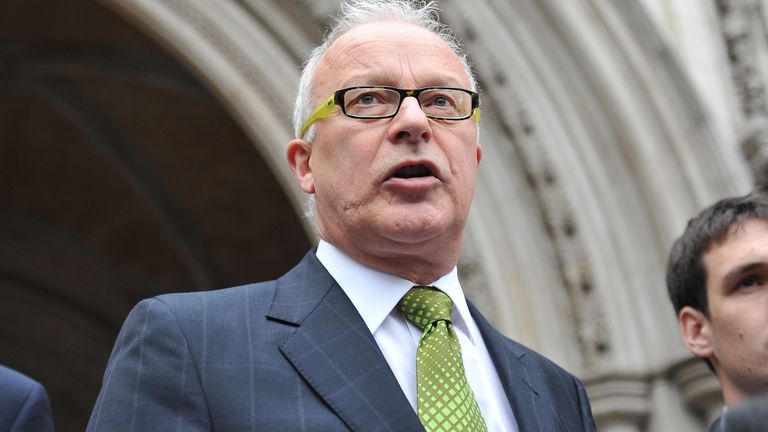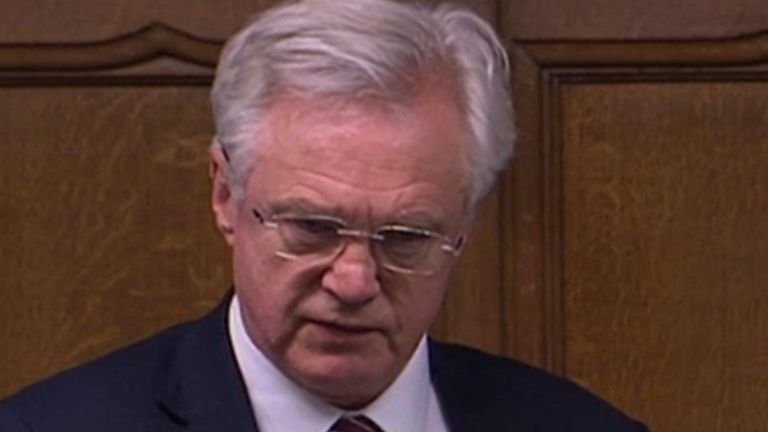Overseas Operations Bill: Government facing calls to rethink plan to ‘decriminalise torture’ by UK troops
The government is pushing ahead with plans to introduce stronger legal protections for UK troops serving overseas – despite calls for ministers to think again about their plans to give “a free pass over alleged war crimes”.
MPs will on Wednesday debate the Overseas Operations Bill in the House of Commons, as the government seeks to meet its election promise to tackle “vexatious claims” against the Armed Forces.
Ministers have cited the problems of a previous probe into allegations made against Iraq war veterans as one example of the need to legislate.
In 2017, the £34m Iraq Historic Allegations Team (IHAT) was closed down after seven years without a successful prosecution.
It followed the striking off of Phil Shiner, a human rights lawyer who brought abuse claims against UK troops, for multiple charges of misconduct.
Around 70% of allegations received by IHAT were dismissed as there was no case to answer.
The government’s aim is for the Overseas Operations Bill to provide protections for troops and veterans facing repeated investigations and potential prosecution from military operations abroad.
The proposed legislation would create a “triple lock” for troops and veterans, including a presumption against prosecution for alleged offences committed more than five years ago.
The bill also proposes to introduce time limits on bringing civil claims in connection with overseas operations; and would place a duty on the government to consider derogating from the European Convention on Human Rights in relation to significant overseas military operations.
Defence Secretary Ben Wallace said: “This government made a promise to the nation to protect service personnel and veterans from vexatious claims and endless investigations.
“We have not shied away from the challenge and today are one step closer to fulfilling that commitment.
“We all remember Phil Shiner, and the scores of allegations that have amounted to nothing over the years.
“Our Armed Forces risk their lives to protect us and it is vital we continue to progress this legislation, providing certainty for the troops who find themselves on the front line in the future.”
Johnny Mercer, the minister for defence people and veterans, said the legislation would “put an end to lawfare” and help make the UK “the best place in the world to be a veteran”.
“This legislation is not about providing an amnesty or putting troops above the law but protecting them from lawyers intent on rewriting history to line their own pockets,” he added.
However, the government is facing opposition to its plans from human rights groups, Labour, and even from among its own MPs.
Senior Conservative MP David Davis, a former Cabinet minister, has said he is “deeply troubled” by government plans to “decriminalise torture by British personnel if it took place more than five years ago”.
Labour’s shadow defence secretary, John Healey, said the government had got “important parts of this bill badly wrong” but promised to work with the government on “better” legislation.
“It is not too late for ministers to think again about the best way to protect service personnel from vexatious litigation while ensuring that those who commit serious crimes during operations are prosecuted and punished appropriately,” he wrote in The Times on Tuesday.
:: Subscribe to Sophy Ridge on Sunday on Apple podcasts, Google podcasts, Spotify, Spreaker
The UK’s human rights watchdog, the Equality and Human Rights Commission, has called for the government to withdraw its plans and argued a time limit would never be set for serious crimes if they were committed outside of the Armed Forces.
And Amnesty International UK has claimed the proposed legislation would cause “real and lasting damage to the reputation of the Armed Forces”.
“It is in no-one’s interests for members of the Armed Forces to be given a free pass over alleged war crimes,” said director Kate Allen.
The bill does not apply to operations in the United Kingdom, including events that occurred in Northern Ireland during The Troubles.
The government intends to introduce separate legislation to address the legacy of the past in Northern Ireland.
Source: Read Full Article




